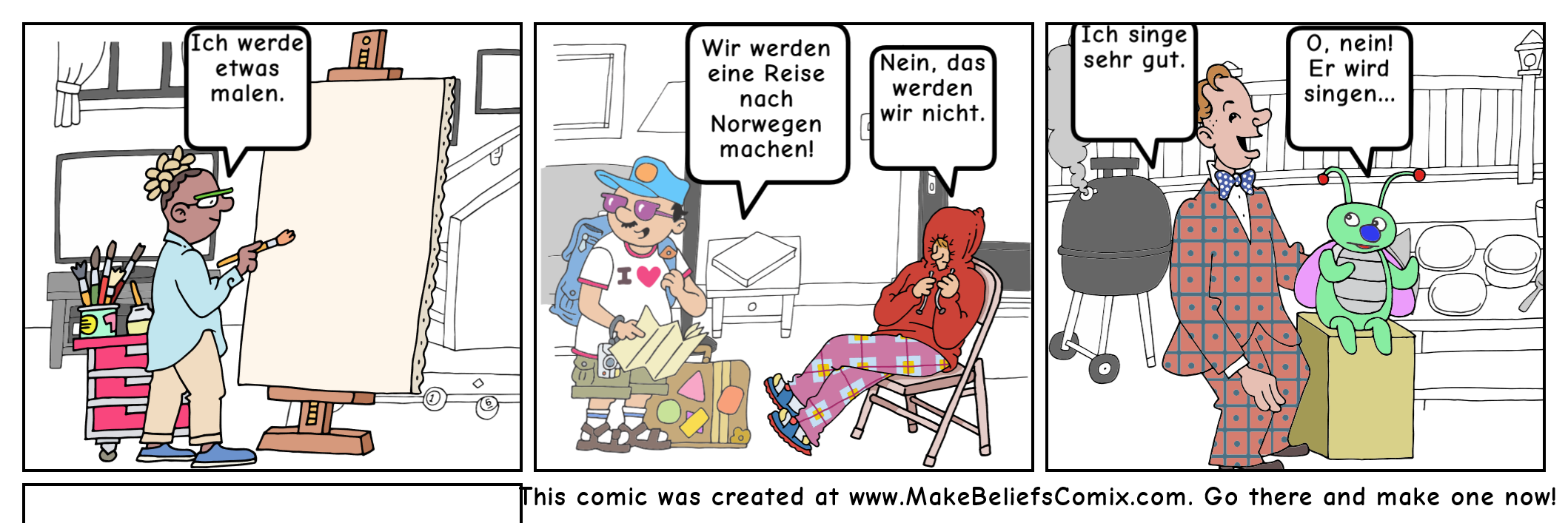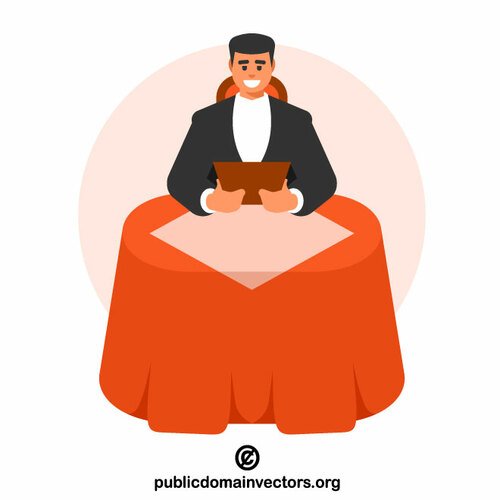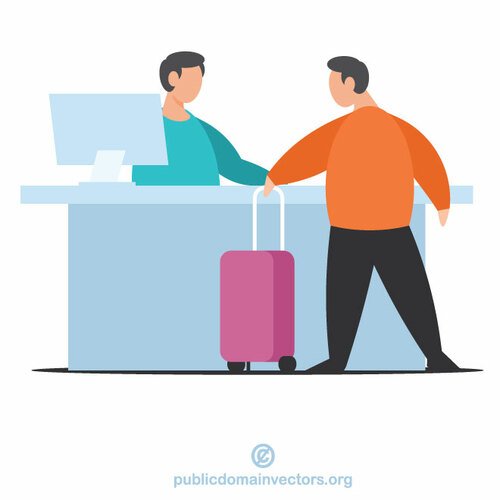22 Section 2-7: Future Tense
2.7: Future Tense
To talk about things in the future in German, (especially those happening very soon), we can use the present tense with a time expression.
- Ich reise morgen nach Frankreich.
- Nächsten Monat kaufe ich einen neuen Computer.
In section 2.4, you learned the stem-changing verb werden, which means “to become” or “to turn (an age).”
|
werden—to become, to get (as in “become”) |
|
|
ich werde |
wir werden |
|
du wirst |
ihr werdet |
|
er/sie/es wird |
sie/Sie werden |
Das Wetter wird kalt. (The weather is getting cold.)
Mein Neffe wird sechzehn. (My nephew is turning 16.)
In German, the verb werden is also used as a helping verb to form the future tense. It has the same meaning as English “will.”
Beispiel:
Wir werden am Dienstag nach Europa reisen.
(We will on Tuesday to Europa travel.)
Notice that reisen, to travel, is at the very end of the sentence and NOT conjugated.
- Question 1: Why is reisen not conjugated?
- Answer: Because werden, our helping verb, is conjugated instead. Only the first verb gets conjugated.
- Question 2: Why is reisen at the end of the sentence? It sounds weird that way.
- Answer: Das ist Deutsch! To form the future tense, the second verb always gets kicked to the end of the sentence.
- Comment: But it sounds like how Yoda from Star Wars talks!
- Reply: Yes, it does. Therefore, you will use Yoda as your guide to learn word order in future tense.

Try to annoy your family and friends by attempting a few English sentences with this word order so that you can get the hang of it in German.
- I will tomorrow to the movies go.
- Ich werde morgen ins Kino gehen.
- Will you me help?
- Wirst du mir helfen?
- He will no vegetables eat.
- Er wird kein Gemüse essen.

Video. Click the first link to see me reteaching future tense and the second to watch Ms. Mando’s video reteaching future tense.
Ex. C: Was werden Sie machen? Ask your classmates what they will be doing at the following times? Don’t forget to put time before place!
Beispiel: nächsten Sommer
A: Was wirst du nächsten Sommer machen?
B: Ich werde nächsten Sommer nach Florida reisen.
- am Dienstag
- um drei Uhr
- nächste Woche
- in 10 Tagen
- im Dezember
- am Samstag
- um halb neun
- nächstes Jahr
- im Februar
Listen to Wilhelmine’s song, An all diesen Tagen, 2022, to hear examples of the verb werden.
Text: https://genius.com/Wilhelmine-an-all-diesen-tagen-lyrics
EXTRA PRACTICE with Future Tense: (courtesy of Claudia Kost & Crystal Sawatzky, University of Alberta)
Ex. D: Was werden Sie in zwanzig Jahren machen? Write a brief paragraph about your life in twenty years. Where will you be? What will you do?
Ex. E: Was werden diese Leute machen? Using the future tense, write a complete sentence to describe what these people will do based on the pictures.
 5.
5. 
 6.
6. 
 7.
7. 
 8.
8. 
EXTRA PRACTICE WITH FUTURE TENSE:
Click the link to do German.net’s extra practice with future tense. You may not know all the words, but just look at the subject in order to conjugate the verb correctly. It will check your answers.
Ex. F: Vorstellung. Lesen Sie den Artikel und beantworten Sie die Fragen. Go to lingua.com’s website to read the article and answer the questions online. You can also hear the article read aloud or print a PDF of it.
Ex. G: Juliana in Deutschland. Lesen Sie den Artikel und beantworten Sie die Fragen on lingua.com’s website. This one is a little more challenging, but you should be on the right track with a dictionary at your side.

